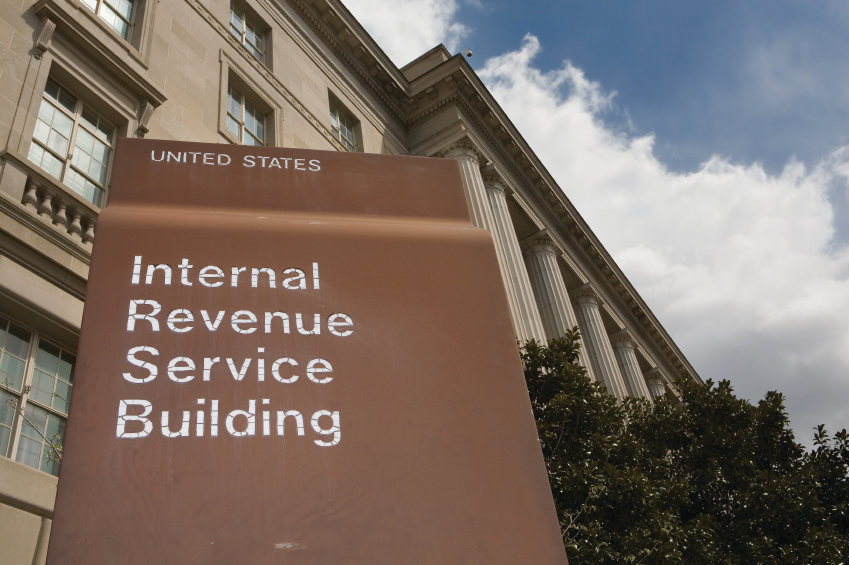In Patience Mutual Assistance Corp, et al, the Tax Court has denied a California medical cannabis company’s deduction for ordinary and necessary expenses, and cost of goods sold (COGS).
BACKGROUND
Under Section 280E, the code states:
No deduction or credit shall be allowed for any amount paid or incurred during the taxable year in carrying on any trade or business if such trade or business (or the activities which comprise such trade or business) consists of trafficking in controlled substances (within the meaning of schedule I and II of the Controlled Substances Act) which is prohibited by Federal law or the law of any State in which such trade or business is conducted.
Thus, a taxpayer may not deduct any amount for a trade or business where the trade or business (or the activities which comprise the trade or business) consists of trafficking in controlled substances (e.g., controlled substances within the meaning of Schedule I—such as marijuana—and Schedule II of the Controlled Substances Act) which is prohibited by Federal law. Nonetheless, several state legislatures have passed laws legalizing the cultivation and sale of marijuana.
Four years after enacting Code Sec. 280E, Congress added the uniform capitalization (UNICAP) rules of Code Sec. 263A to the Code. Under Code Sec. 263A(a), resellers and producers of merchandise are required to treat as inventoriable costs the direct costs of property purchased or produced, respectively, and a proper share of those indirect costs that are allocable to that property. Flush language at the end of Code Sec. 263A(a)(2) provides, “Any cost which (but for this subsection) could not be taken into account in computing taxable income for any tax year shall not be treated as a cost described in this paragraph.”
In Californians Helping to Alleviate Med. Problems, Inc., (2007) 128 TC 173 (“CHAMP”), the taxpayer, CHAMP, had the primary purpose of providing caregiving services to individuals. Its secondary purpose was providing members with medical marijuana under the California Compassionate Use Act of ’96 (CCUA). IRS disallowed all of CHAMP’s deductions under Code Sec. 280E. The Tax Court held that marijuana is a schedule I controlled substance for this purpose, even if it’s medical marijuana recommended by a physician as appropriate to benefit the user’s health. However, the Tax Court allowed CHAMP to deduct its expenses attributable to its counseling and other caregiving services. The Court rejected IRS’s contentions that CHAMP was engaged in a single business activity (trafficking in marijuana) or that Code Sec. 280E required the denial of all CHAMP’s expense deductions.
The Code Sec. 471 regs have different rules for resellers and producers. Under the regs, resellers must use as their COGS the price they pay for inventory plus any transportation or other necessary charges incurred in acquiring possession of the goods. (Reg § 1.471-3(b)) On the other hand, producers must include in COGS both the direct and indirect costs of creating their inventory. (Reg § 1.471-3(c), Reg § 1.471-11) Producers have to capitalize the cost of raw materials, expenditures for direct labor, and indirect production costs incident to, and necessary for, the production of the particular article, including an appropriate portion of management expenses. (Reg § 1.471-3(c)).
Patients Mutual Assistance Collective Corporation d.b.a. Harborside Health Center (Harborside), a California medical-marijuana dispensary, had four activities, each of which it maintained was a separate trade or business:
- The sales of marijuana and products containing marijuana. This included edibles, beverages, extracts, concentrates, oils, topicals, and tinctures (marijuana-infused alcohol, vinegar, or glycerin) which Harborside bought from other collectives, tested, and repackaged if needed. Harborside also purchased all of its marijuana flowers (buds) from its patient-growers with some of these growers promising to sell what they cultivated back to Harborside. Harborside gave them either seeds or clones (cuttings) to get started. Once a grower had cultivated, harvested, trimmed, flushed, dried, and cured his marijuana buds, he would bring them to Harborside to sell.
- The sales of products with no marijuana. This included branded clothing, hemp bags, books about marijuana, and marijuana paraphernalia such as rolling papers, pipes, and lighters.
- Therapeutic services. A portion of each marijuana sale included free holistic services.
- Brand development. Harborside maintained that its branding activities were part of a “unified business enterprise” with its activities that did make money during the years at issue
In July 2012, the federal government filed a civil forfeiture action in the California district court in which it alleged that that the property which Harborside rented and on which it operated its business was subject to forfeiture because it was used to commit the distribution, cultivation, and possession of marijuana in violation of 21 U.S.C. sections 841(a)10 and 856. The action was dismissed with prejudice in May 2016 by stipulation of the parties.
On audit, IRS determined that Harborside’s sole trade or business was trafficking in a controlled substance and that Code Sec. 280E prevented it from deducting business expenses. IRS also determined that Harborside had to calculate COGS using the Code Sec. 471 regs for resellers. Harborside argued that Code Sec. 280E didn’t apply to it, that it was a producer, and that a dismissed civil-forfeiture action precluded a deficiency action.
Further, during the years at issue (2007 through 2012), the Court determined that Harborside was engaged in only one trade or business, which was trafficking in a controlled substance. Harborside dedicated the lion’s share of its resources to selling marijuana and marijuana products. Those sales accounted for over 99.5% of its revenue. Its other activities were neither economically separate nor substantially different. As that single trade or business — the sale of marijuana — was trafficking in a controlled substance under federal law, Harborside couldn’t deduct any of its related expenses
Specifically, the Court found that the sale of non-marijuana-containing products had a “close and inseparable organizational and economic relationship” with, and was “incident to,” Harborside’s primary business of selling marijuana. And the Court found that Harborside’s holistic services offered free alongside its sales of cannabis had a business purpose: it justified premium pricing and helped Harborside meet the community-benefit standards California law required. As for Harborside’s brand development, the Court noted that ther was no evidence that if was in any way a separate trade or business: its branding using the same entity, management, capital structure, employees, and facilities as Harborside’s marijuana sales.
In addition, the Tax Court determined that Harborside had to adjust for COGS according to the Code Sec. 471 regs for resellers. Looking at the flush language at the end of Code Sec. 263A(a)(2), the Court reasoned that if something wasn’t deductible, taxpayers couldn’t use that section to capitalize it. Code Sec. 263A makes taxpayers defer the benefit of what used to be deductions—it doesn’t make what was once nondeductible now deductible.
The Court concluded that the Code Sec. 263A capitalization rules don’t apply to drug traffickers. Unlike most businesses, drug traffickers can’t capitalize indirect expenses beyond what’s listed in the Code Sec. 471 regs. Code Sec. 263A expressly prohibits capitalizing expenses that wouldn’t otherwise be deductible, and drug traffickers don’t get deductions. Because federal law labels Harborside a drug trafficker, it must calculate its COGS according to Code Sec. 471.
While Harborside was without question a reseller of the marijuana edibles and non-marijuana-containing products it bought from third parties and sold at its facility, the situation was more complex for the marijuana bud it sold. Harborside insisted that it produced this marijuana and could include in its COGS the indirect inventory costs that Reg § 1.471-3(c) describes. IRS said Harborside was a reseller and, under Reg § 1.471-3(b), it could include only its inventory price and transportation costs. The Court concluded that Harborside was a reseller.
The Court reasoned that for purposes of Code Sec. 471, production (and who is a producer) turns on ownership — ownership as determined by facts and circumstances, not formal title. Harborside merely sold or gave members clones that it had purchased from nurseries and bought back bud if and when it wanted. In between these two steps it had no ownership interest in the marijuana plants. Harborside was therefore a reseller for purposes of Code Sec. 471 and it had to adjust for its COGS, according to Reg § 1.471-3(b).
=====
Craig W. Smalley, MST, EA, is the Founder and CEO of CWSEAPA, PLLC. He has been admitted to practice before the Internal Revenue Service as an Enrolled Agent and has a Master’s Certificate in Taxation from UCLA. In practice since 1994, Craig is well-versed in U.S Tax Law and U.S. Tax Court cases, and specializes in individual, partnership, and corporate taxation for high-net-worth clients; entity structuring and restructuring; and representation before the IRS regarding negotiations, audits and appeals. Craig is currently a columnist for CPA Practice Advisor and AccountingWEB and has had 12 books published. His articles have been featured in publications including the Wall Street Journal, The New York Times, and Christian Science Monitor, and he has been interviewed and appeared as a featured guest on numerous radio shows and podcasts. Craig can be reached at craig@craigwsmalleyea.com.
Thanks for reading CPA Practice Advisor!
Subscribe Already registered? Log In
Need more information? Read the FAQs





